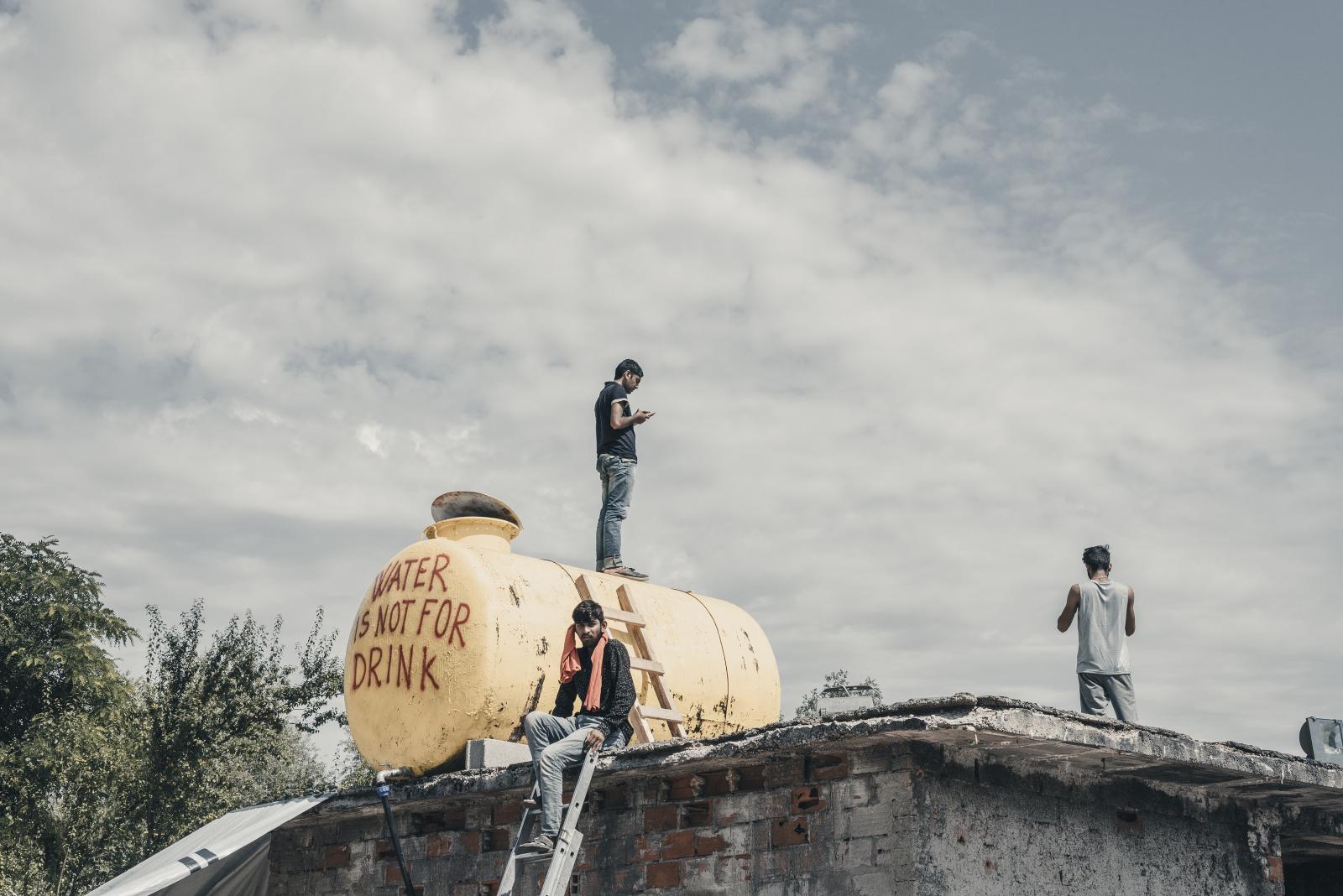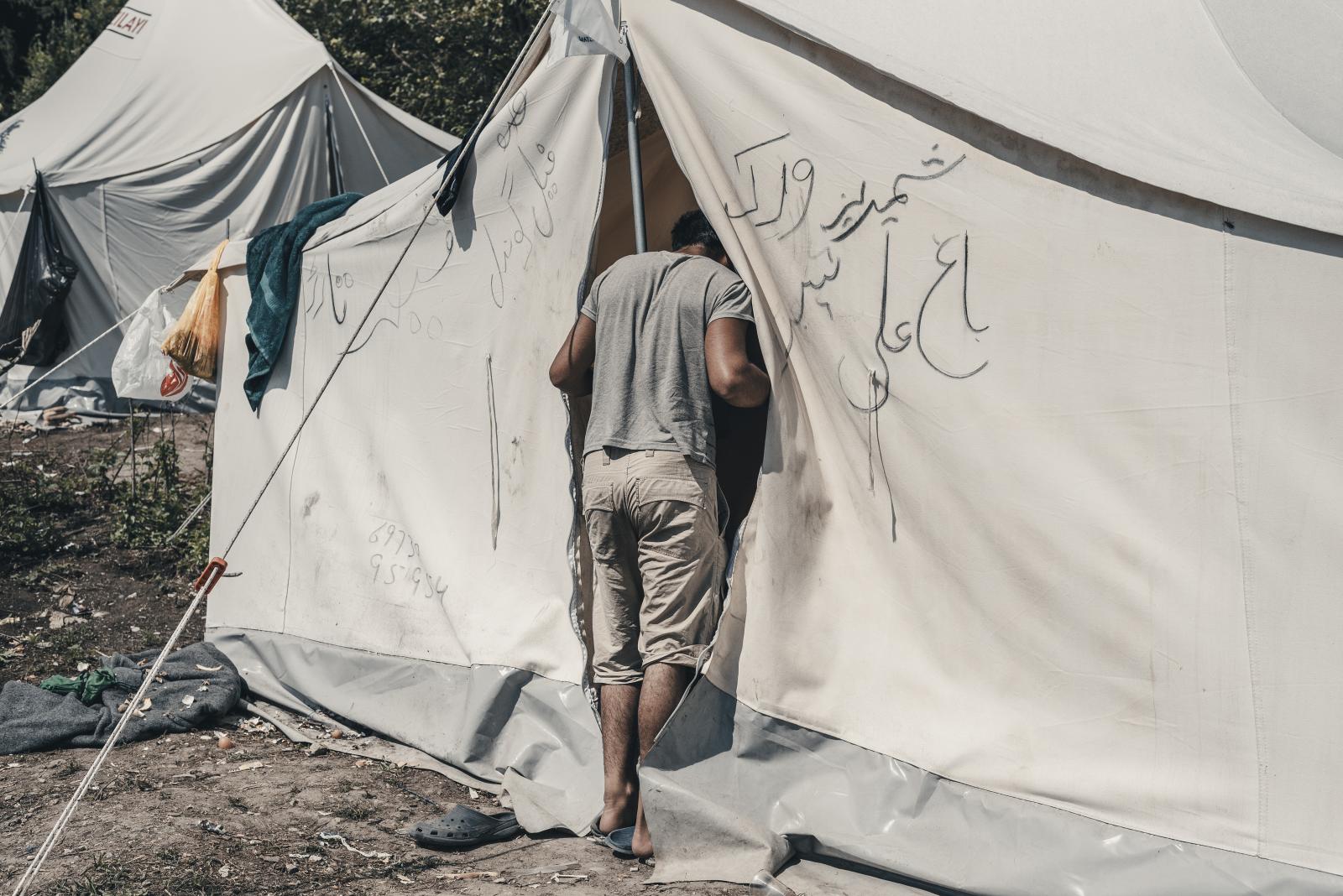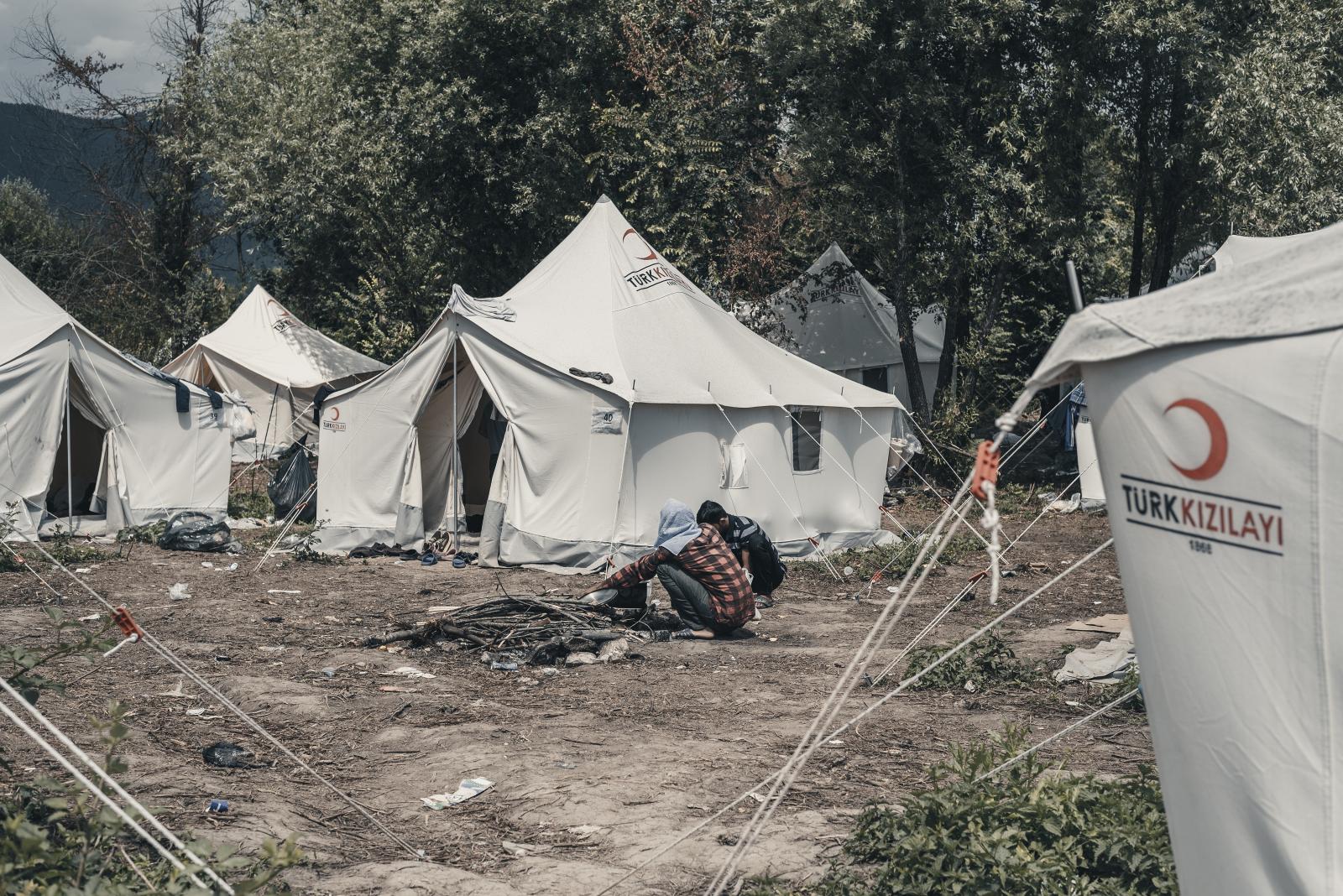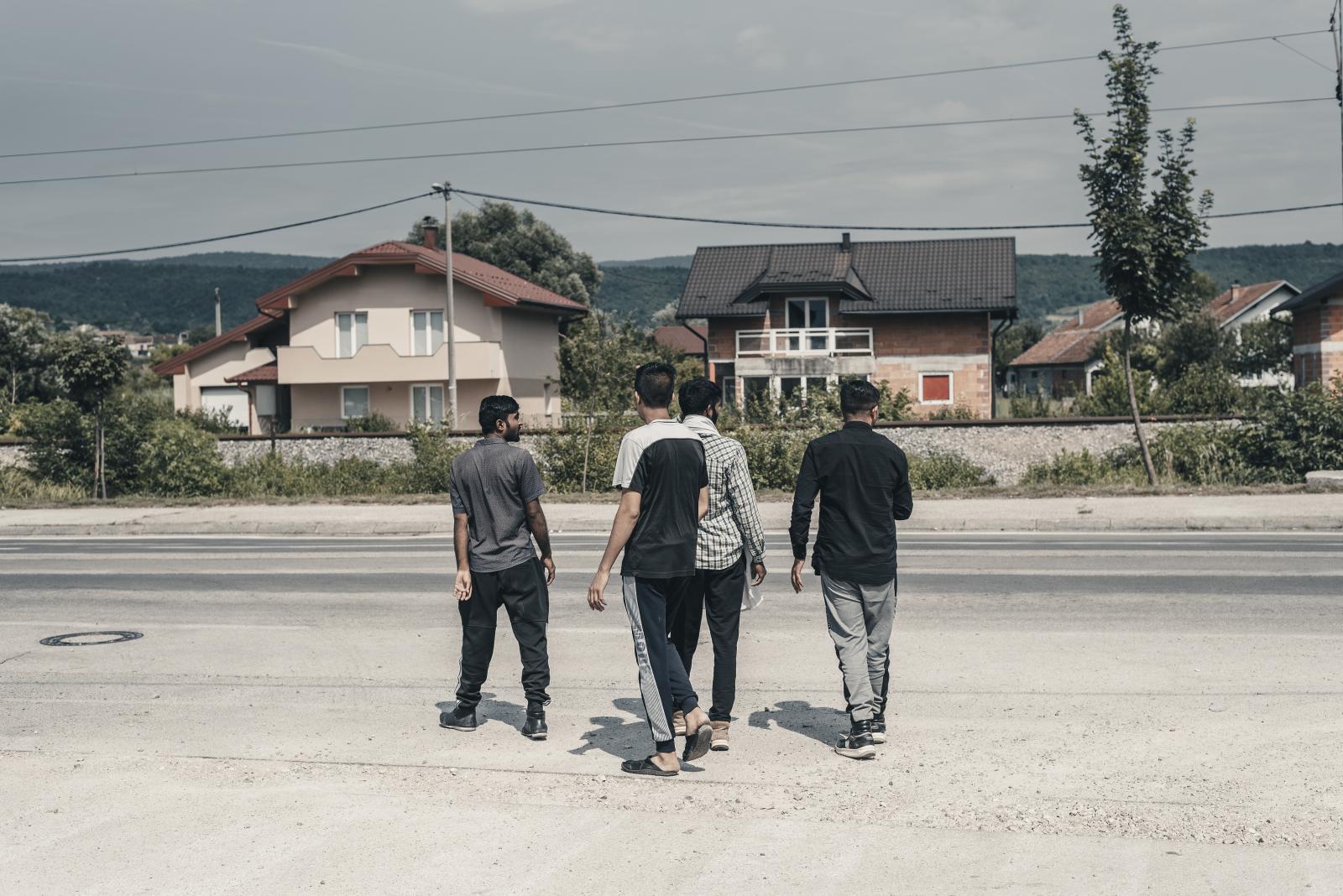Public Story
Beyond the border. Signs of passages across European borders
Summary
This reportage is part of Beyond the border, an ongoing project with photos by Luca Prestia and texts by Federico Faloppa
Summer 2019. For our project Beyond the border. Signs of passages across European borders we are in Bihać, in the north-western part of Bosnia and Herzegovina, a few kilometers from Croatia.
The scene of clashes between the Bosnian and Croatian armies in 1992, today Bihać is a small town that tries to invest in tourism for its waterways and its pretty historic center. But it is also the crossroads of one of the two ‘Balkan routes’ still viable: the route that goes from Turkey to Croatia through Greece, Macedonia, Serbia, and Bosnia (the other route, more bumpy, crosses Bulgaria). And its territory hosts several thousand people who are waiting for their best opportunity to «go to Europe» (to Germany, Italy, France, passing through Slovenia) and that – in the meantime – seek shelter in one of the refugee camps set up around the city. Camps like the much discussed Bira camp: an industrial warehouse managed by the World Organization for Migration (IOM) and UNHCR with European funds which the media have often talked about. Or camps like the camp of Vučjak, set up last spring [2019] by the municipality and the Red Cross. Vučjak, literally «the wolf's den», is five kilometers from the center of Bihać, and it is surrounded – towards the mountains – by areas still mined for the 1992-95 war.
Above all, it is a former rubbish dump in the middle of nowhere that, when we get there, hosts about fifty, not to mention a good variety of mice, snakes, and mosquitoes. About six hundred people live now [July 2019] in Vučjak: young men mainly from Pakistan, Afghanistan, Syria, Iraq. Or better, we should say that six hundred people survive in Vučjak, thanks to the efforts of a bunch of doctors and volunteers from the local Red Cross. The Vučjak camp is indeed a time bomb due to the very bad material conditions that people experience here. The municipality of Bihać is well aware of this situation – and in fact it might have set up the camp to (instrumentally) provoke a reaction by international institutions – as much as the NGOs working in the area, the IOM and the UNHCR, the European Union, and the many journalists who come here, take a few pictures and leave all excited for their new report from the ‘Balkan route’. Everybody knows, I mean, but everyone turns a blind eye. Better this camp than nothing, they say: better these shelters in a former rubbish dump than no shelters. After all here, they say, it is no worse than anywhere else: the Red Cross provides some support, tents provide some shelter from the wind and the rain, there are even some water, camp kitchens, and a couple of self-managed outlets. In Bira it is even worse, they say: there the camp is strictly managed while here – despite the lack of resources and the extreme poverty – everybody is free to move, to come and go anytime, to talk to each other without having to ask someone's permission.
Turkish is the lingua franca to communicate: the little Turkish learned travelling across Turkey, good enough to understand each other. Whereas it would be more difficult to communicate in English, as just a few people can speak it properly, although it would be very useful to try to reach Croatia, and from there Slovenia, and the EU. Speaking English would maybe increase their chances to succeed, to reach their destinations, whatever this is. Instead, people try seven, eight times to get to the other side (the ‘game’, they call this wheel of fortune of continuing the journey): most of the times, the Croatian police catch and expel them, not before robbing, beating up, humiliating them, not before breaking their cell phones or stealing all their possessions, cutting off the soles of their shoes… Shoes are so precious to those who try to cross the border across the woods, or among bushes and rocks. Good footwear means being able to withstand cold temperature and rain, to keep stability among stones and brambles, to escape quickly in case. Flip-flops, if not bare feet, are instead synonymous with slowness, fragility, high risk of being caught. The fatigue and the hardness of the ‘game’ can easily be perceived though objects: small but sturdy backpacks full of provision for traveling; third-hand anoraks in case of heavy rain or cold temperatures; long trousers to protect from insects. And an impressive amount of bottles of water, as in the summer the risk of getting dehydrated is high.
All these objects, and many more, we have find in a very humid day of July [2019], along a hidden path in the woods between Bosnia and Croatia, traveled by migrants to secretly cross the border: objects left behind with a certain logic by their owners before crossing the invisible line of the border (first, warm clothes; then everything – documents, papers, receipts – that can help the Croatian police to identify migrants; lastly, hundreds of bottles of water thrown into the trees, a few inches from the border). Objects which are like indexical signs not meant to be meaningful by whoever has left them, but still highly significant for the stories they can tell, for the human perseverance they stand for.
Text by Federico Faloppa
































